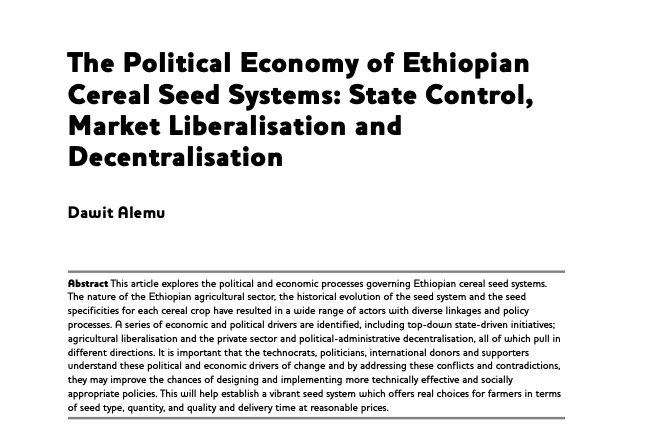The Political Economy of Ethiopian Cereal Seed Systems: State Control, Market Liberalisation and Decentralisation

This paper presents the political and economic processes governing Ethiopian cereal seed systems by analysing the overall policy context, as well as the main interests driving seed policy formulation and implementation and the roles and interaction of the different public and private actors. It also examines how these interests and interactions are related to the performance of the system on the ground. The nature of the Ethiopian agricultural sector, the historical evolution of the seed system and the seed specificities for each cereal crops has resulted in a wide range of actors with diverse linkages and policy processes. The analysis of these processes has identified a number of constraints faced by the Ethiopian cereal seed system. These constraints are a result of a economic and political drivers, including top-down state driven initiatives, agricultural liberalisation and the private sector and political-administrative decentralisation, all of which pull in different directions. While contrasting interests in federal and decentralised state level activities exist, ultimately it is the state-driven imperatives that define what private sector activity is possible. Centrally directed, state-supported efforts, including numerous campaigns, special projects and programmes along with ad hoc crash programmes, create numerous blockages in the supply and distribution of seed. These ???pull-push??? factors have brought about severe strains within the system. Thus, it is important that the technocrats, politicians, international donors and supporters understand these political economic drivers of change in the Ethiopian cereal seed system. By addressing these conflicts and contradictions, they may improve their chances of designing and implementing more technically effective and socially appropriate policies. This in turn will help establish a vibrant seed system which offers real choices for farmers in terms of seed type, quantity, and quality and delivery time at reasonable prices.